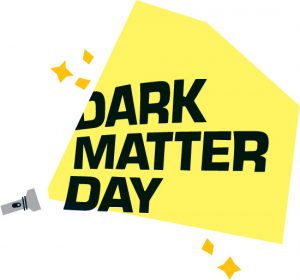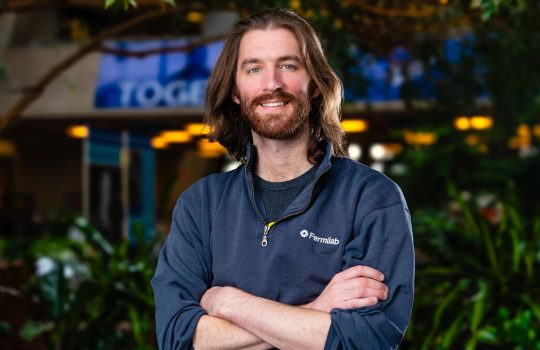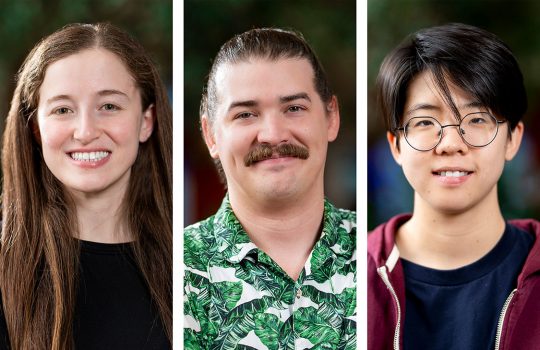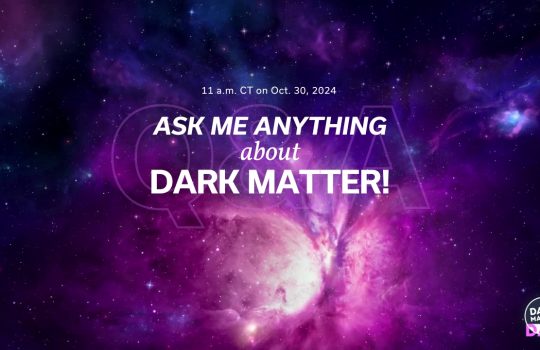Editor’s note: Fermilab joins the global celebration of Dark Matter Day. Hear from Fermilab scientists during a special webinar on Saturday, Oct. 31, at 1 p.m. CT. Take a virtual tour of the lab’s dark matter experiments and detectors, and learn how Fermilab is helping answer questions about the mysterious stuff that makes up 25% of our universe. Register now to attend the free event.
Below is an adaptation of a press release published by the Interactions collaboration.
There’s far more to our universe than meets the eye. Everything we can see, everything we know exists, makes up just five percent of the matter and energy in the universe. So, what about the other 95%? Astronomers and astrophysicists believe that approximately 25% of the missing mass and energy in the universe is made up of dark matter. This ubiquitous substance is everywhere, yet, so far, remains a mystery.
Dark Matter Day, an international event, aims to shed some light on that mystery. From Oct. 26-31, a series of Dark Matter Day events will highlight the global search for dark matter, which, together with dark energy, makes up about 95% of the mass and energy in our universe. Dark Matter Day spreads the word about the many fascinating ways scientists search for dark matter, and the importance of devoting scientific resources to unraveling this cosmic riddle.
Dark Matter Day is going virtual this year, making every event accessible to a worldwide audience. To explore the many opportunities to participate, visit the Dark Matter Day website.
Although scientists have yet to detect dark matter, indirect evidence tells us it exists — in the gravitational effects of galaxies and the way light bends around unseen objects in space. Understanding the nature of dark matter will help us better understand the universe in which we live. But scientists are not sure yet what this mysterious substance is composed of or whether the answer, when it comes, will require a complete rewrite of our understanding of physics.
A host of innovative experiments are searching for the source of dark matter using different types of tools, such as detectors built over a mile underground, powerful particle beams and telescopes based both on Earth and in space. For more on the global hunt for dark matter, visit the Interactions collaboration’s Dark Matter Hub.
Sponsored by the Interactions Collaboration, an international community of particle physics communication specialists, Dark Matter Day celebrates the work being done in laboratories and institutions around the world, and shares what we do know about this cosmic puzzle with audiences worldwide.
To find resources or to register your event, go to the Dark Matter Day website.
Fermilab research on dark matter is supported by the DOE Office of Science.
Fermilab is supported by the Office of Science of the U.S. Department of Energy. The Office of Science is the single largest supporter of basic research in the physical sciences in the United States and is working to address some of the most pressing challenges of our time. For more information, visit science.energy.gov.




